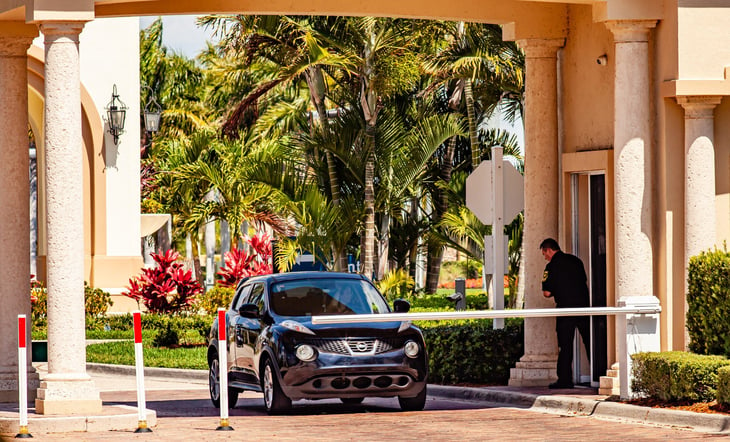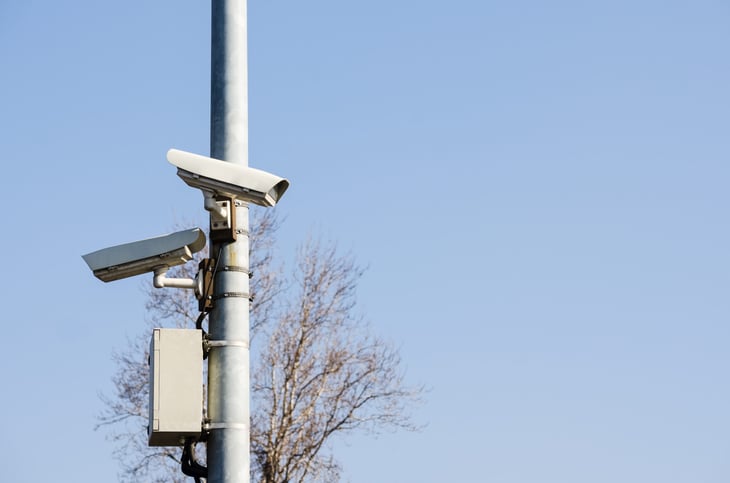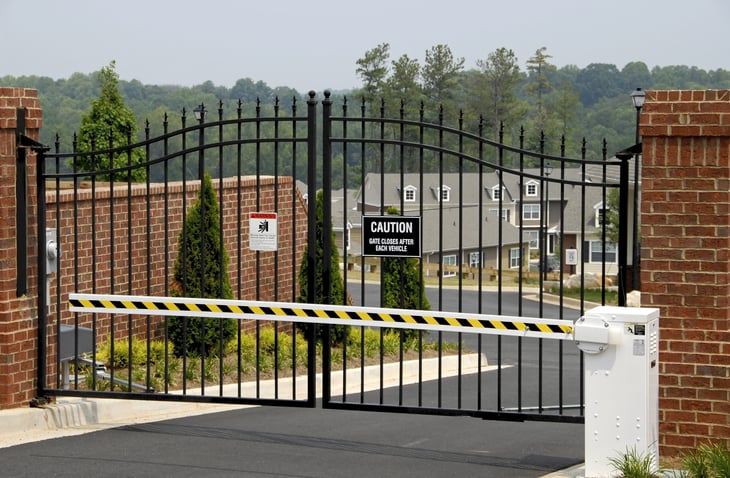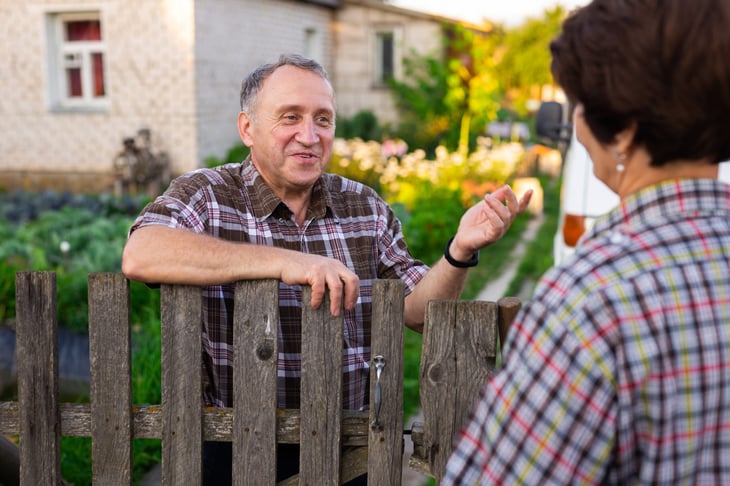
Editor's Note: This story originally appeared on Point2.
Nowadays, there are more choices than ever when it comes to buying a home. From affordable country bungalows to luxury penthouse apartments and everything in between, there’s something for every budget and lifestyle. Homes in gated communities are just one of the many options, yet they differ from most in several ways.
Indeed, buying a home in a gated community can be somewhat divisive. There are undoubtedly many positive attributes, but for each thing that some people will love, there’s a flip side that others will hate. It helps to look at both sides of the coin before choosing whether a gated community is right for you.
But before we delve in, it’s worth defining a gated community. Also known as a walled community, it’s best described as a residential housing estate situated on a private road. Access to the community is restricted to residents and authorized visitors by a gate that prevents entry from public roads for vehicles and pedestrians.
Gated communities are typically enclosed within a perimeter fence or wall, which could be made from anything from brick and mortar to bushes and trees. This gives residents privacy, reinforced by various security systems and staff.
When deciding if this is right for you. Here are some things to consider…
1. How Much It Costs

In many cases, gated communities are associated with luxury and exclusivity. House prices in gated communities reflect this and tend to have a higher assessed value than similar homes outside gated areas. So, if you’re planning to purchase such a property, you can expect it to be more expensive than many other options.
But it’s not just about the price of the home itself. As a private community, the municipality won’t maintain the roads and local amenities. Residents are required to band together to pay for the upkeep of roads, landscaping, and communal amenities, such as pools, tennis courts or community centers.
Whichever way you look at it, life in a gated community is expensive. Be sure you can afford not only the price of the home itself but also the various ongoing fees and costs.
2. Security Issues

For anyone concerned about security, a gated community offers a fantastic sense of safety. With on-site security guards, comprehensive surveillance and controlled access points, it’s unlikely that criminals will make it near your home, let alone cause any trouble. As an added boon, residents also won’t need to deal with unsolicited callers, reducing the potential to fall victim to a scam.
The downside is the cost and the fact that you cannot opt-out. On top of that, with controlled access points, you may find yourself regularly queuing to get in or out of your community. This can be a big problem during holiday periods and for those who commute at busy times.
3. Privacy or the Lack of It

Being cut off from the wider world offers a great sense of privacy and safety. With outside visitors restricted, there’s no danger of unwanted interference or unsolicited callers. Not only does this offer peace of mind, but also allows those who crave solitude to find it.
However, things aren’t always as they seem. In some cases, moving into a gated community can feel like there’s less privacy than ever. Surveillance cameras monitor everything coming and going, and it can soon feel like Big Brother is watching.
Not only that, but as a small, enclosed community, it can be difficult to escape the gaze of your neighbors, especially as a newcomer. Communities with strict HOA rules can be particularly tricky, as it could easily seem like everyone scrutinizes your every move, especially at the beginning.
4. Location

The development of gated communities mostly started in the 1980s, long after city limits were defined and inner neighborhoods populated. As a result, many such communities are located outside city limits or in less populated areas. This can be a great advantage if you’re hoping to escape the hustle and bustle of the city and enjoy less noise and pollution and more green space.
However, this kind of location is often extremely car-dependent, as public transit options can be scarce. On top of that, commute times into traditional business, commercial or industrial hubs can be longer compared to those from inner city locations.
Gated communities can also come across as somewhat isolated. This can make it feel like you’re cut off from the rest of the world, including friends and family who may find your new home inconvenient to get to.
5. Local Amenities

Most gated communities boast an array of excellent amenities and facilities for residents to enjoy. These can include:
- Golf courses
- Tennis courts
- On-site gym
- Clubhouses
- Playgrounds and parks
- And much more
Since they’re for residents only, you’ll get plenty of chances to enjoy them and interact with your neighbors. However, while some gated communities do offer on-site restaurants and entertainment venues, these are fairly uncommon. Where they do exist, they tend to be more expensive than their downtown equivalents.
Other essential amenities that most gated communities lack include supermarkets, pharmacies, schools, grocery stores and medical centers. This means you’ll be on the move a lot, reinforcing the fact that many gated communities are heavily reliant on owning a car.
That’s not necessarily a problem for adults, but it can be tricky for teens craving freedom, as well as retirees who no longer wish to spend too much time behind the wheel.
6. It’s a Tight-Knit Community

Wherever you choose to live, your overall experience will be heavily influenced by the people around you. Since they tend to be reasonably small, you’ll find it’s pretty easy to get to know your neighbors and soon recognize every face. With shared goals ensuring a high standard of living is maintained for everyone, you’ll often find a fairly strong sense of community, too.
But, like anywhere, your neighbors can make or break your living experience. Being in a small community can work against you if you don’t really relate to them.





Add a Comment
Our Policy: We welcome relevant and respectful comments in order to foster healthy and informative discussions. All other comments may be removed. Comments with links are automatically held for moderation.